Ci2024 Closing Keynote: Rex Ogle and Mark Oshiro
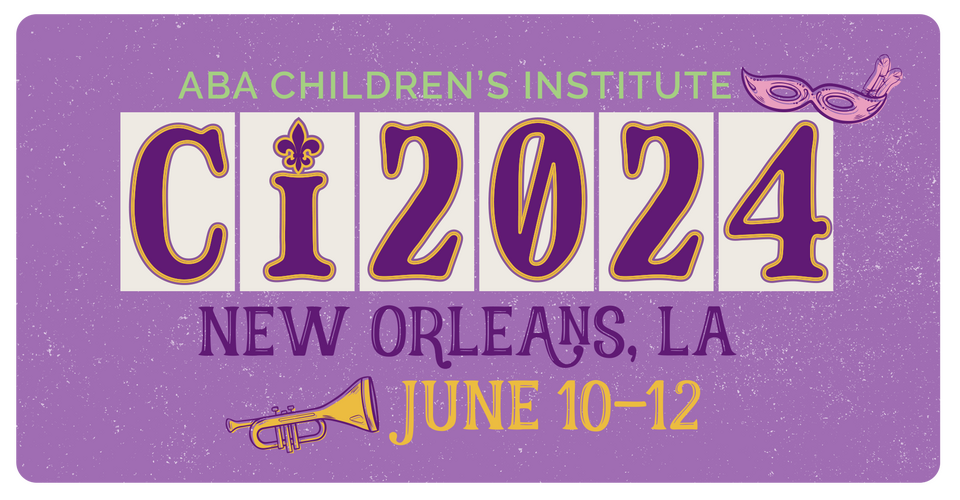 On Wednesday afternoon in New Orleans, La., ABA's Children's Institute held the final keynote of the three-day conference: a conversation between authors Rex Ogle and Mark Oshiro, moderated by Kai Burner, assistant manager and children's and gift buyer of the Bookworm of Edwards, Edwards, Colo. Ogle is the author of Free Lunch (Norton Young Readers), which won the YALSA Excellence in Nonfiction Award, as well as the companion titles Punching Bag and Road Home; Mark Oshiro is the bestselling and award-winning Latinx queer author of Anger Is a Gift as well as several middle-grade books and The Sun and the Star, co-authored with Rick Riordan. Oshiro's Jasmine Is Haunted (Starscape), a middle-grade novel about ghosts and grief, comes out October 1.
On Wednesday afternoon in New Orleans, La., ABA's Children's Institute held the final keynote of the three-day conference: a conversation between authors Rex Ogle and Mark Oshiro, moderated by Kai Burner, assistant manager and children's and gift buyer of the Bookworm of Edwards, Edwards, Colo. Ogle is the author of Free Lunch (Norton Young Readers), which won the YALSA Excellence in Nonfiction Award, as well as the companion titles Punching Bag and Road Home; Mark Oshiro is the bestselling and award-winning Latinx queer author of Anger Is a Gift as well as several middle-grade books and The Sun and the Star, co-authored with Rick Riordan. Oshiro's Jasmine Is Haunted (Starscape), a middle-grade novel about ghosts and grief, comes out October 1.
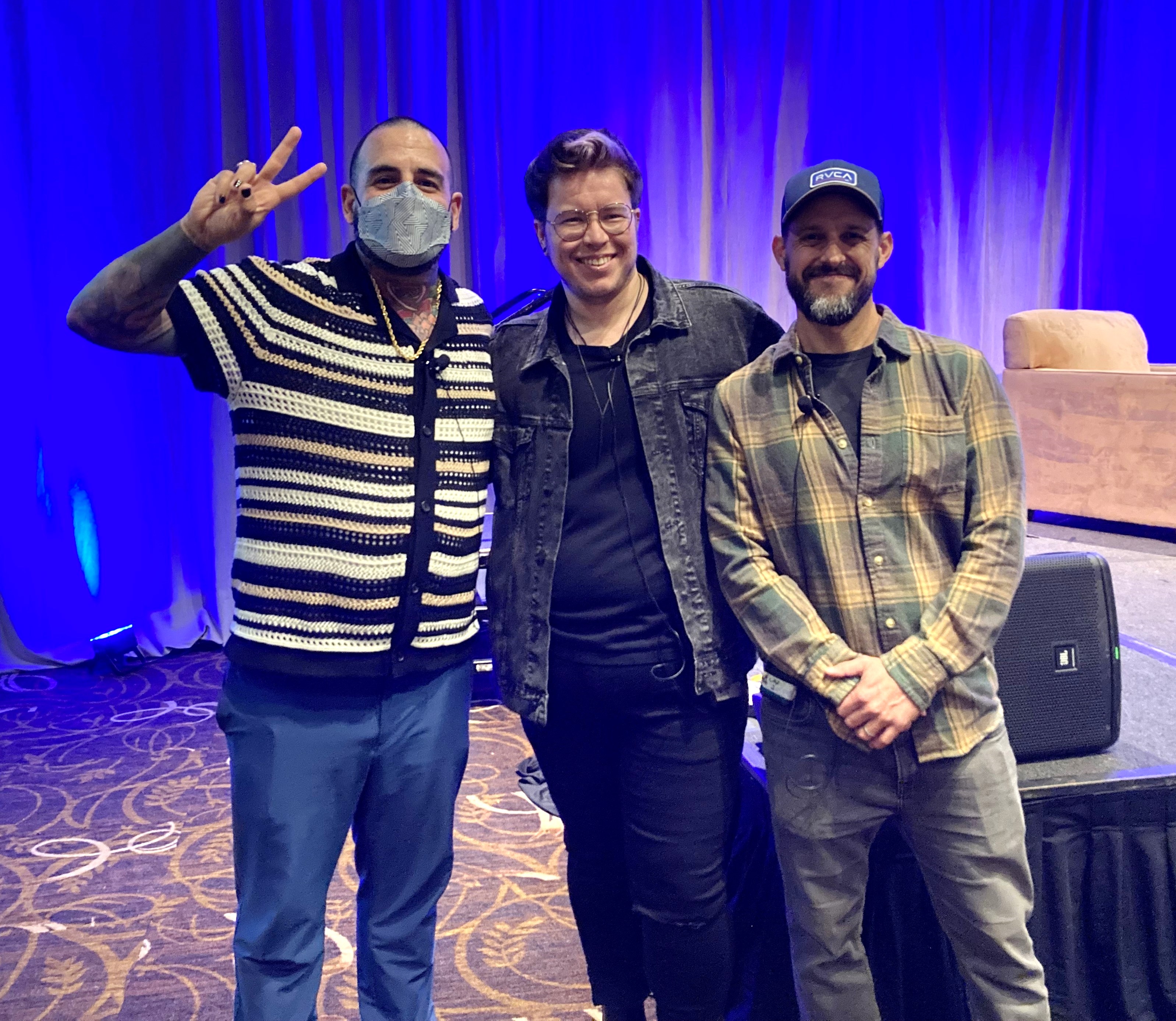 |
|
| Mark Oshiro, Kai Burner, and Rex Ogle | |
Burner started the conversation with a challenge for Ogle and Oshiro: pitch your book in 15 seconds or less. Ogle aimed his face down to child height and began: "Road Home is a true story about my dad kicking me out for being gay and the three months I was homeless afterward. It's a difficult read and... um um um, buy it!" Oshiro said his pitch is "the code word that activates sleeper agents": "It's gay ghostbusters."
Jasmine Is Haunted is a very grounded ghost story, Burner noted, and focuses on real feelings and real struggles. What inspired it? "An incredibly grounded and real moment in a school visit," Oshiro said. "I was in the middle of virtual school visits when my second book came out. And kids are very nosy, so these kids had decided to research me." The students had scrolled so far back in his Instagram that they saw pictures of his boyfriend who had passed away the year before. "They asked me to talk about my boyfriend and I froze and started crying.... At the end of the visit, one of the kids asked, 'Why don't we talk about this stuff?' " Oshiro left thinking, "Why don't we talk about this stuff?"
On the note of "this stuff," Burner turned to Ogle. "I know that Road Home has been a very long time coming for you. It's the close of a trilogy. What gave you the drive to sit down and write it?" Ogle, who came from a trailer park in Texas--"rough childhood, poverty, domestic violence"--always wanted to be a writer. But he never wanted to write his own story; books were supposed to be an escape, not an embarrassing deep dive into his emotional state. "I eventually watched the first episode of Ryan Murphy's Pose, though, and I started bawling. I felt this visceral reaction." That night he wrote an essay that eventually became Road Home--a title he published after first "convincing" Norton to let him write Free Lunch and Punching Bag. "Free Lunch came out and I did all these school visits. Kids would say they read my book, that they're living with poverty or domestic violence, or that they're queer. They said, 'your book makes me feel seen.' I didn't realize that books had that impact. To have these kids contact me blew my mind."
"All of us," Burner noted, "know the lines between fiction and nonfiction can get blurry." Did that happen for Ogle and Oshiro here? Ogle mentioned that people ask if he got closure from writing Free Lunch. "NO," he said emphatically, "But when I finished and I got the book in my hand, this huge weight was lifted off of me. I realized all that stuff happened 25 years ago--it's done, I survived, and now I've trapped it in a book. Ha!"
"I was also a homeless teenager," Oshiro said. "I was also rejected by my parents because I was queer. But I chose to write about myself in fiction, partly because I felt the same as Rex--no one wants to read about this." Into the Light, Oshiro said, is "almost 100% real." But he doesn't think he could have written it as a memoir--"the reality was too dark," there had to be some fictional element to keep the work engaging and exciting. "Then I read yours, Rex, and was like, 'Goddammit!' "
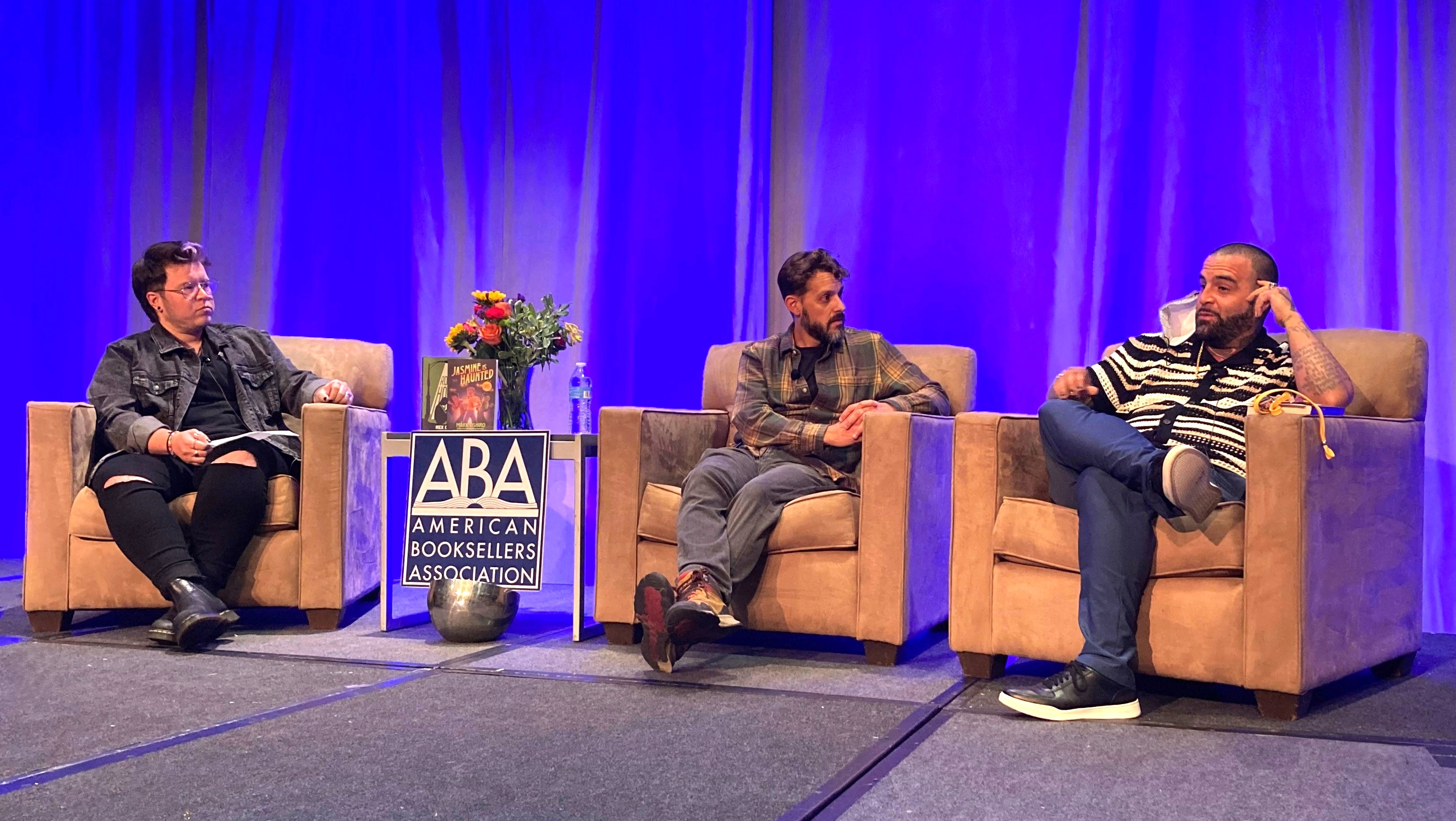 |
|
| Kai Burner chats with Rex Ogle and Mark Oshiro at the final Ci keynote. | |
The darkness in literature for kids and teens became a focus for the rest of the authors' conversation. "We write books because of the pain of being invisible, the pain of your parents rejecting you," Ogle said. "I was homeless here in New Orleans and coming back here has not been the funnest experience. Y'all are super fun. But I cried in my shower for 45 minutes." Books that include the dark, discuss grief, and comment on trauma are important because, he said, they "bring awareness. I think at the end of the day we're starting conversations that let kids know they can talk about this stuff." Oshiro added, "Grief is always isolating. It's striking how we deal with grief in this country, like you should just get over it." Oshiro wanted to write about a child who was isolated by grief and constant moves, but who comes to find community. "I loved having the chance to write these kids who don't quite understand each other at first but slowly realize they have a shared language and shared experience."
Ogle expressed that being homeless is also very isolating. And, when he did get his feet under him, he had "no friends, no family, a new place at the University of Texas...." Then Ogle discovered BookPeople in Austin, Tex. "Any time I wasn't working, I was at BookPeople. I chatted with anyone who would chat with me and I kind of cruised the gay section. I looked for community, I looked for connection, and I found it in that silly little gay section from 1997. Over the years, I have accrued found family and I don't believe any longer that family is blood."
The conversation closed with a discussion about books like those that Ogle and Oshiro write being under attack. Oshiro said he maintained a somewhat manic optimism: "This is cyclical. This is not going to last. It can't last forever." And, he said, his favorite way to deal with book bans is "malicious compliance." He said, "I met these kids whose district initiated one of the reporting procedures. So the kids in that school reported all of their textbooks.... They got the Bible taken out of the library, which is the funniest joke of all time." Ogle, who is from Texas, said his approach has become something his abuela always said: "kill them with kindness." He admitted that it took him a long time to get to this place but now, "if someone is gonna call me a faggot, I'm going to offer to buy them a coffee and have a chat."
Oshiro and Ogle closed by expressing extreme gratitude, both pointing out this was their first-ever keynote. "It means a lot to us that you brought us," Oshiro said. "I have a Xanax in my pocket because I get really nervous," Ogle said. "For the last three days, you have shown me so much love, I didn't need it."
At the very end of the keynote, ABA's Joy Dallanegra-Sanger took the stage to make two major announcements. The first was that, as the 2024 election approaches, the ABA has begun a new partnership with the League of Women Voters. The second was that the 2025 Children's Institute will be held from June 12 to June 14 in Portland, Ore. --Siân Gaetano, children's and YA editor, Shelf Awareness










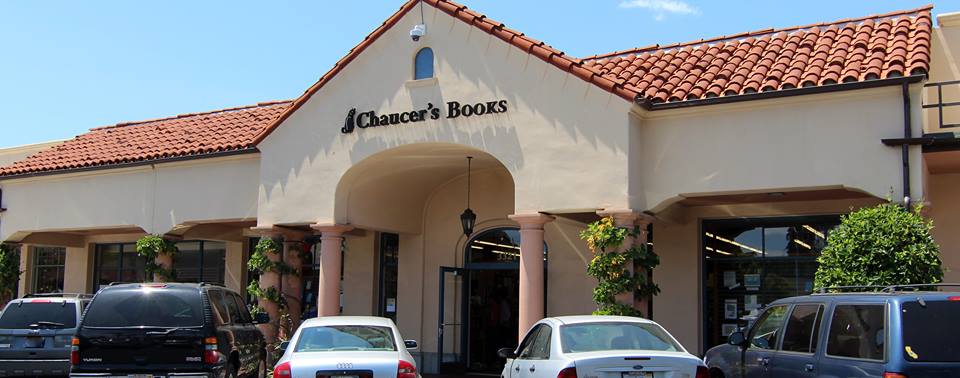



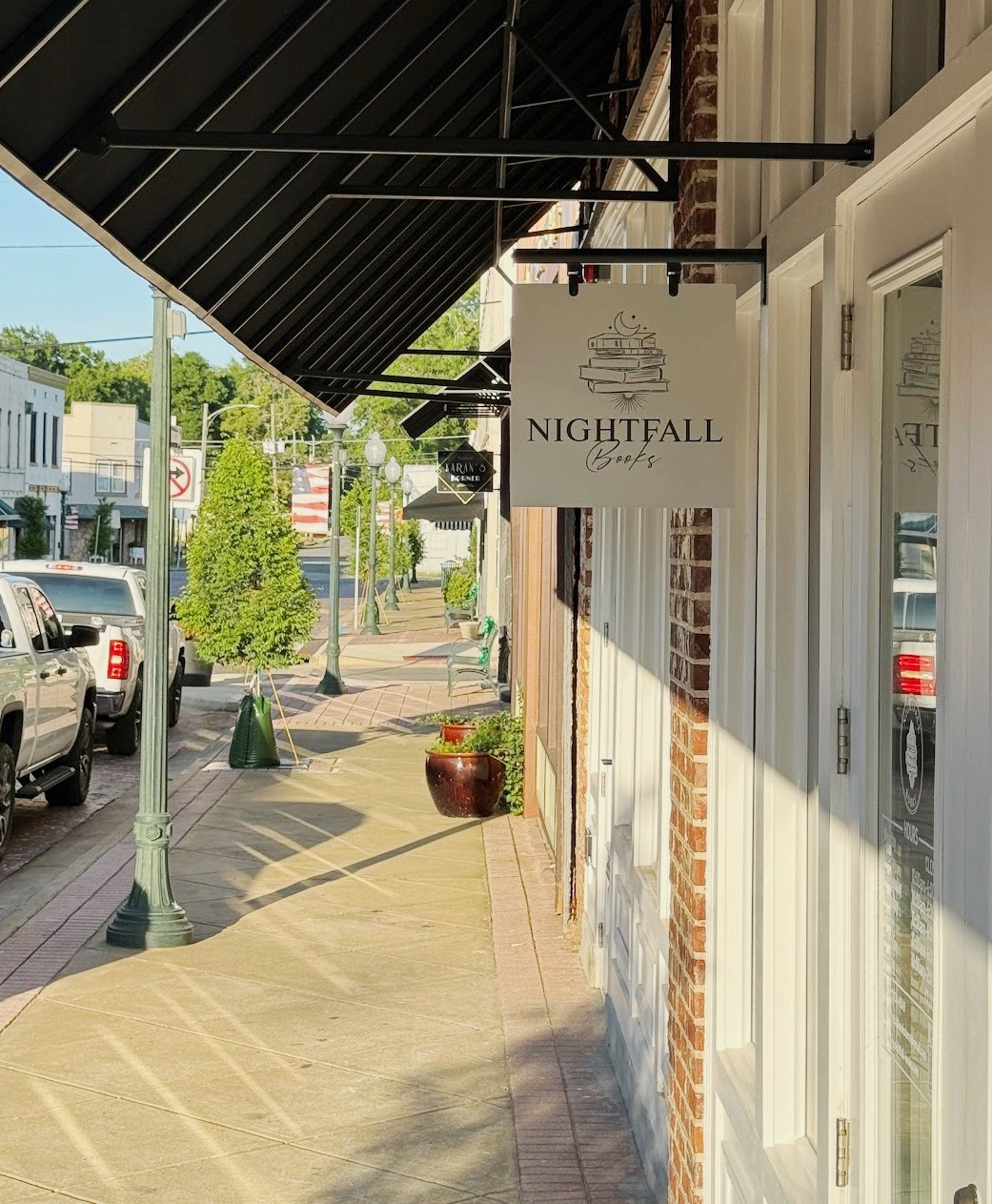
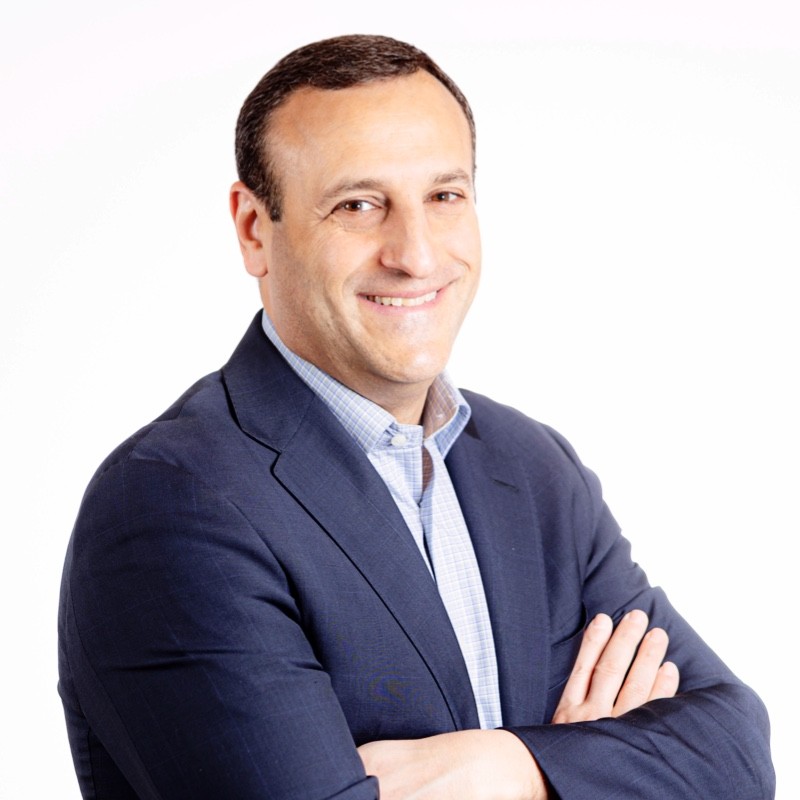
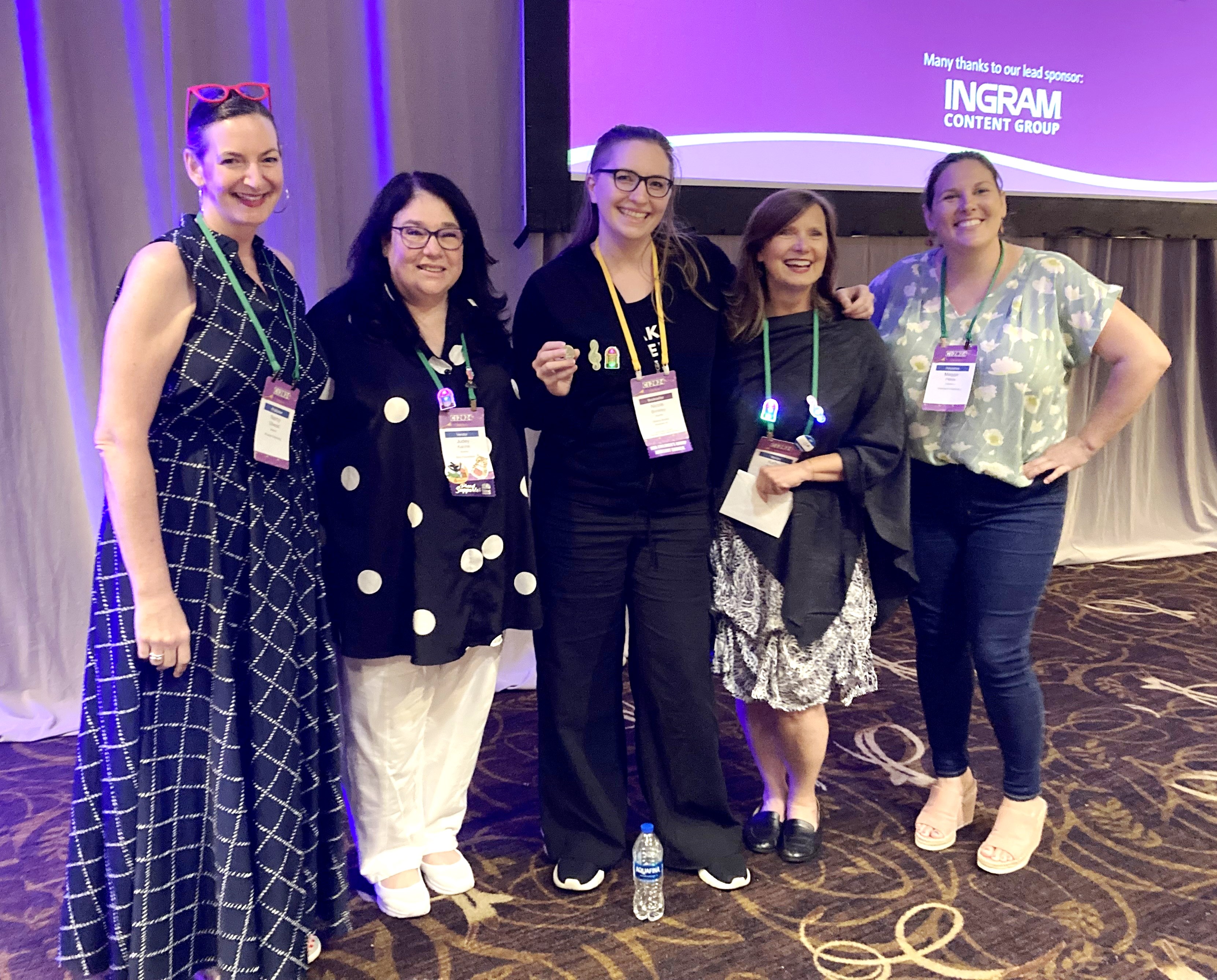 Before the final keynote at ABA's Children's Institute, Kathy Bartson, director of development of the Binc Foundation, led the popular Heads or Tails game. The winner was Nicole Brinkley of Oblong Books in Rhinebeck, N.Y., who said she had entered the competition because a friend had to leave early and gave Brinkley her pins. Brinkley announced she would be giving the money back to Binc. Pictured: (l.-r) Nancy Ellwood, Arcadia Publishing; Judey Kalchik, Binc program manager; Nicole Brinkley; Kathy Bartson; Megan Petrie, Arcadia Publishing.
Before the final keynote at ABA's Children's Institute, Kathy Bartson, director of development of the Binc Foundation, led the popular Heads or Tails game. The winner was Nicole Brinkley of Oblong Books in Rhinebeck, N.Y., who said she had entered the competition because a friend had to leave early and gave Brinkley her pins. Brinkley announced she would be giving the money back to Binc. Pictured: (l.-r) Nancy Ellwood, Arcadia Publishing; Judey Kalchik, Binc program manager; Nicole Brinkley; Kathy Bartson; Megan Petrie, Arcadia Publishing.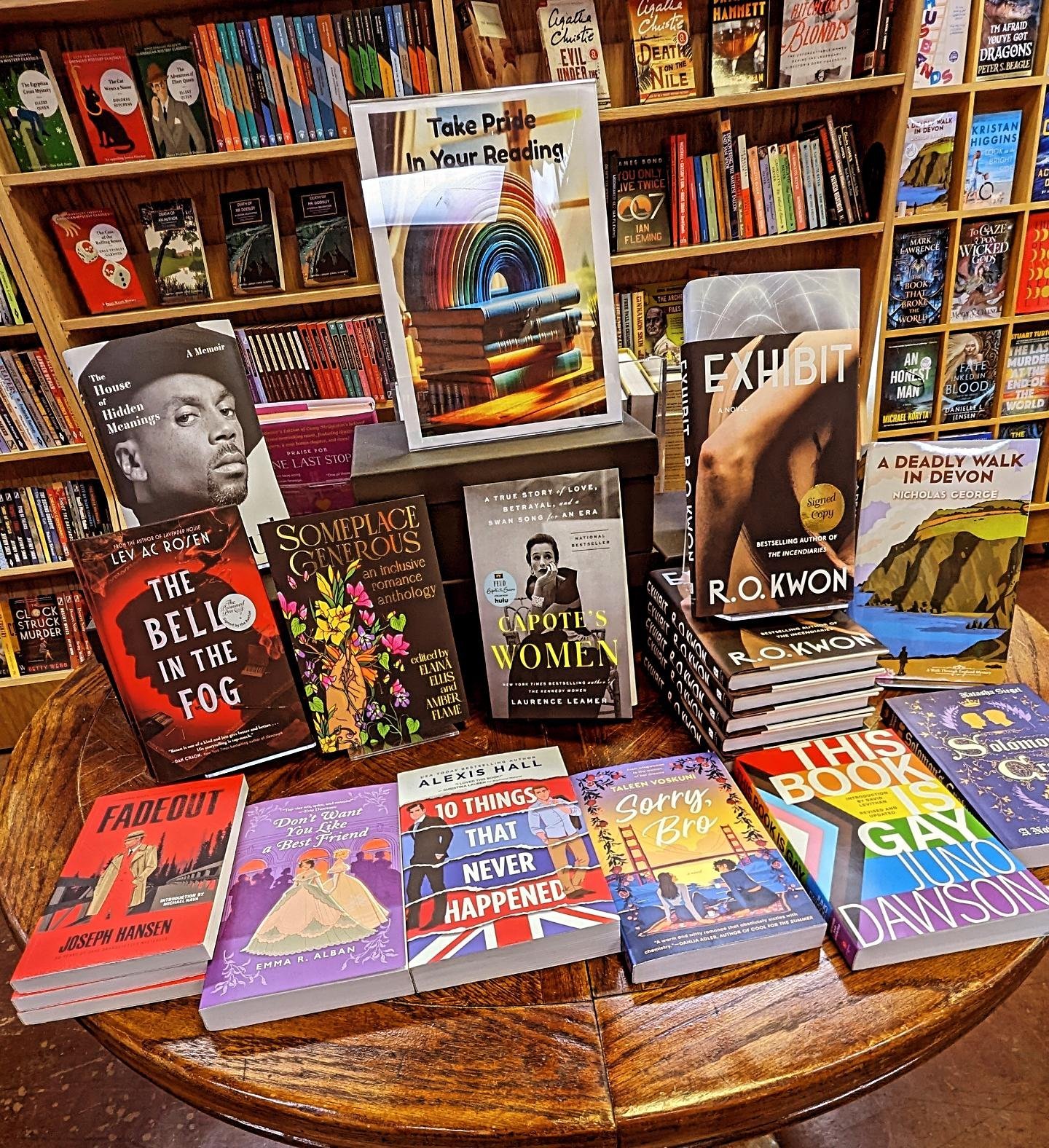 Posted on Facebook by the
Posted on Facebook by the 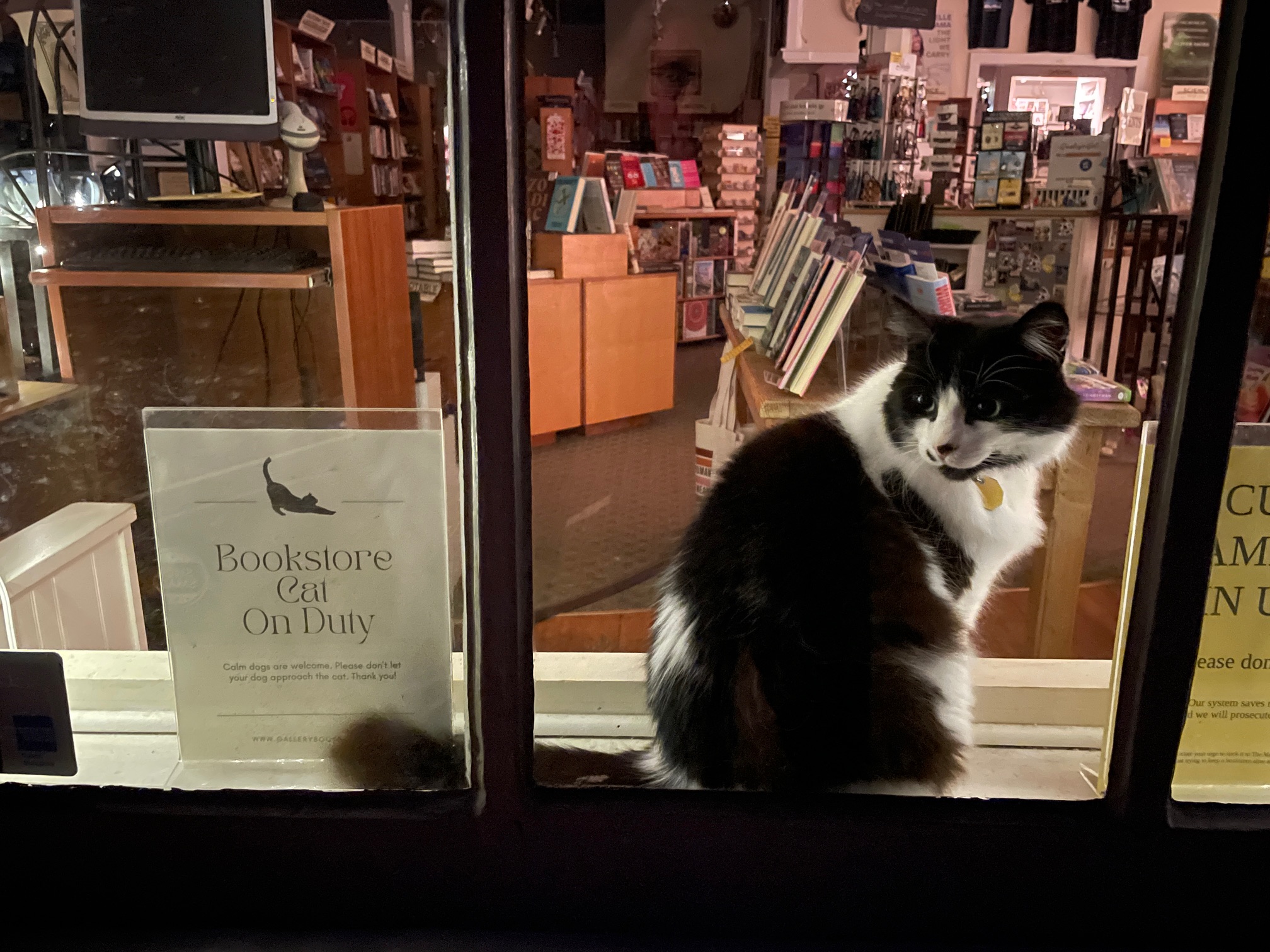 "
"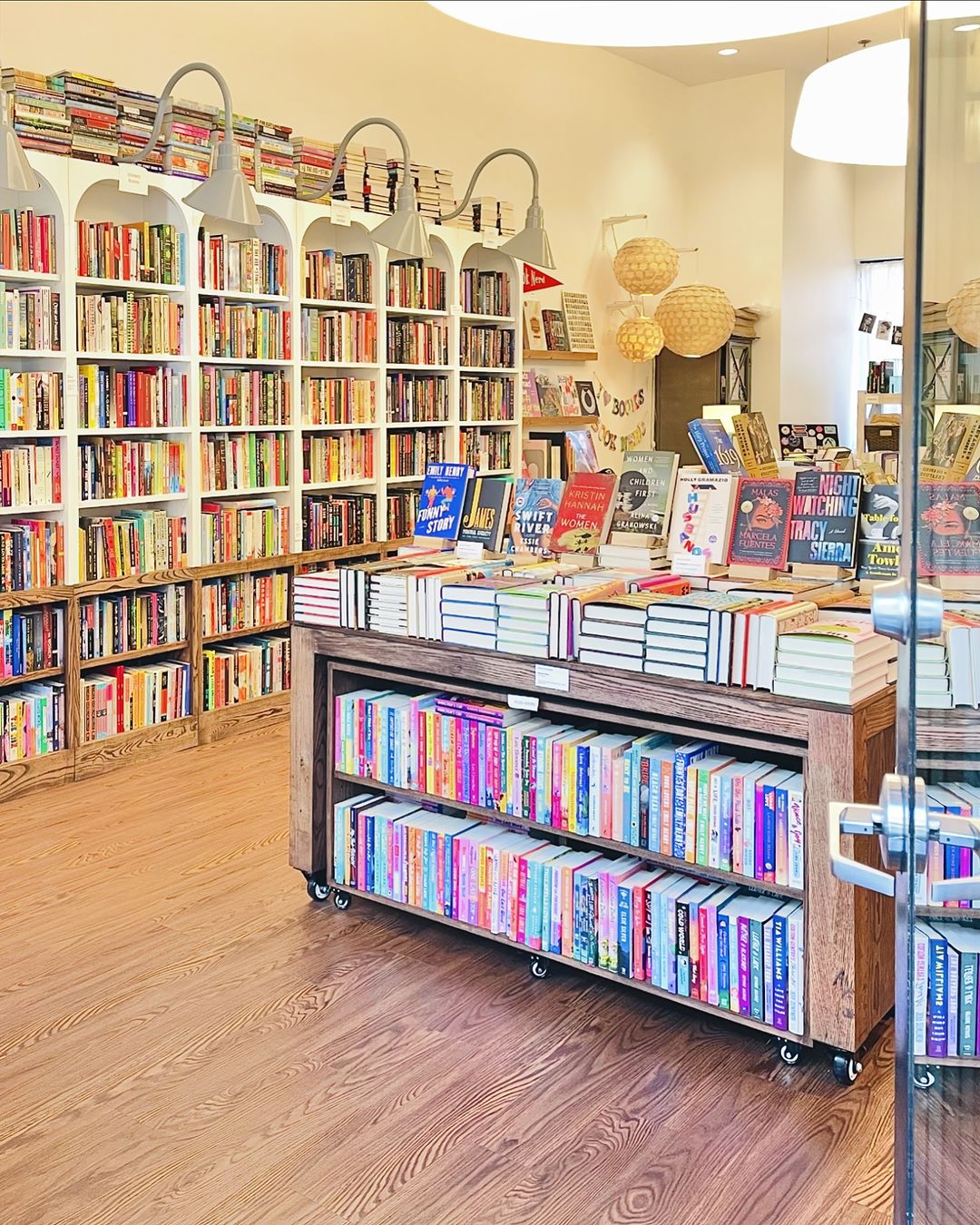 "
"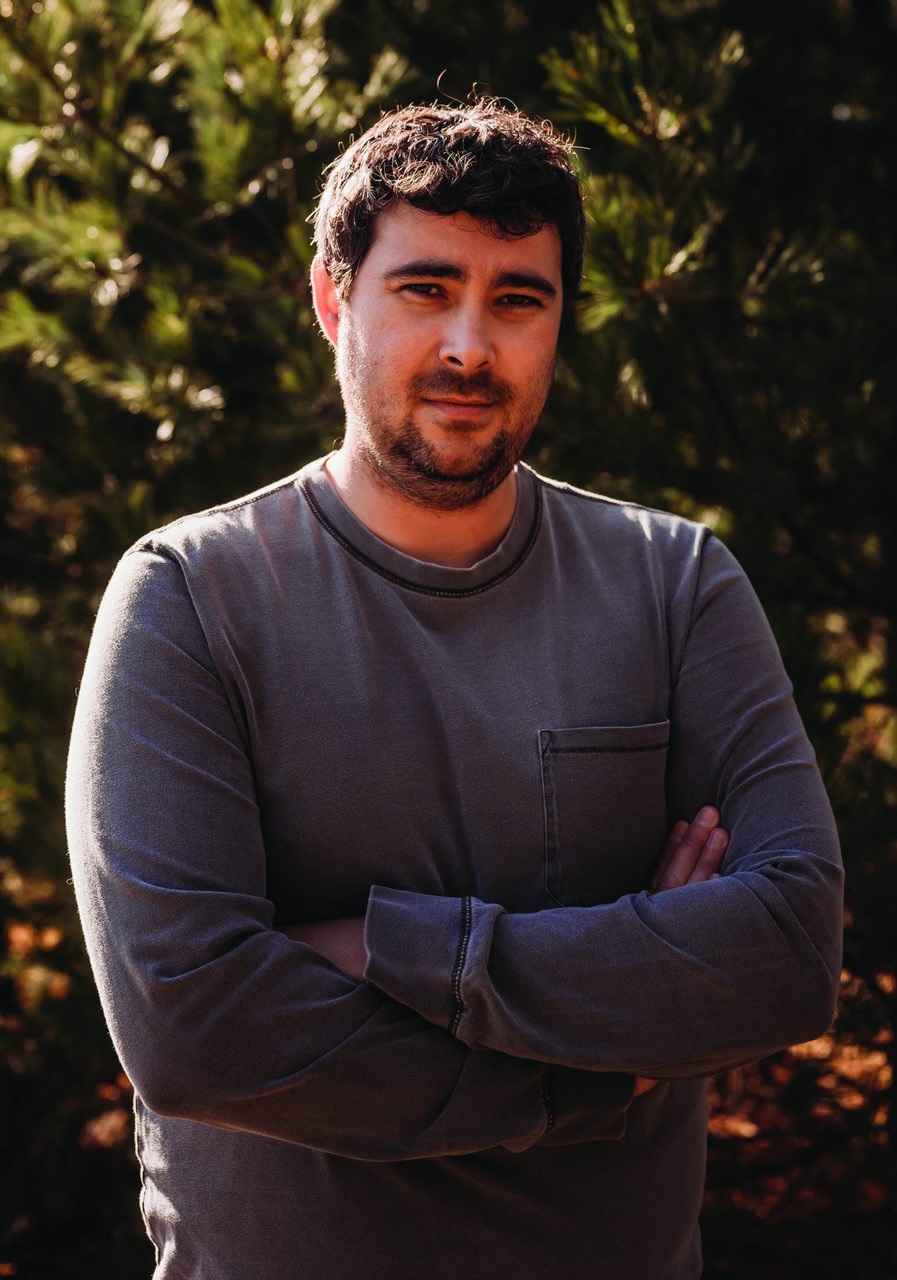
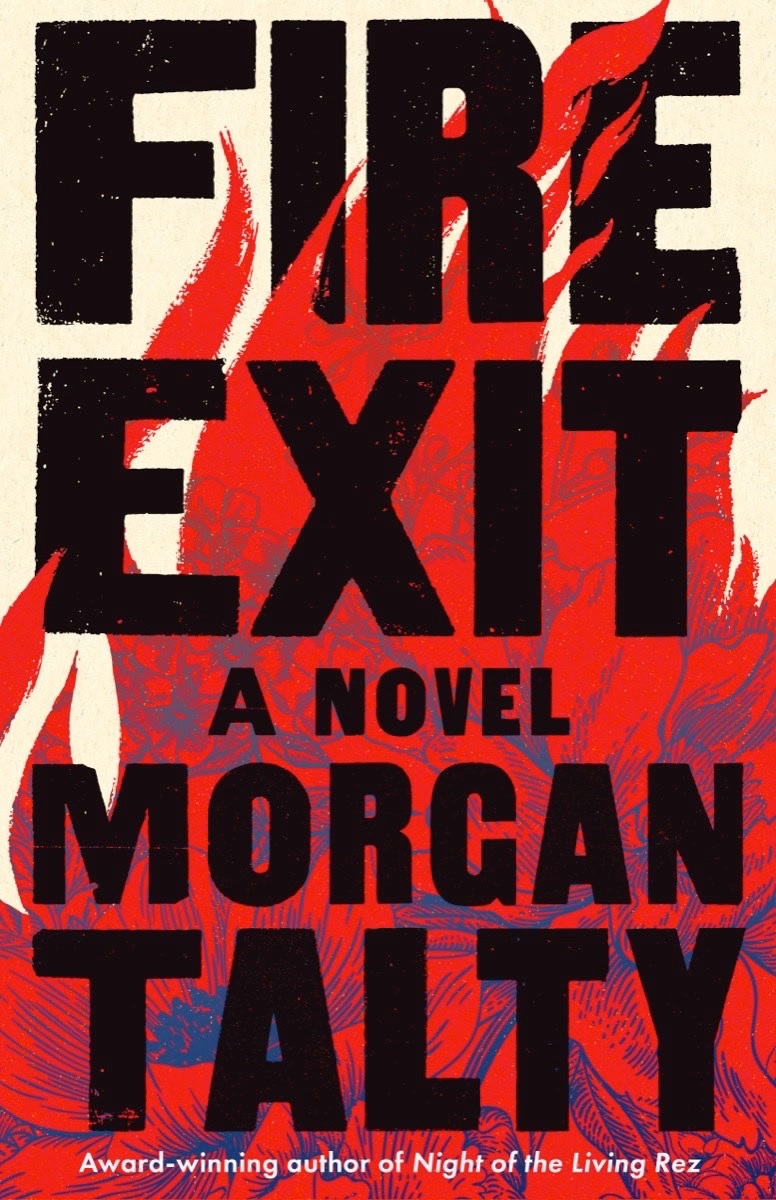 Book you're an evangelist for:
Book you're an evangelist for: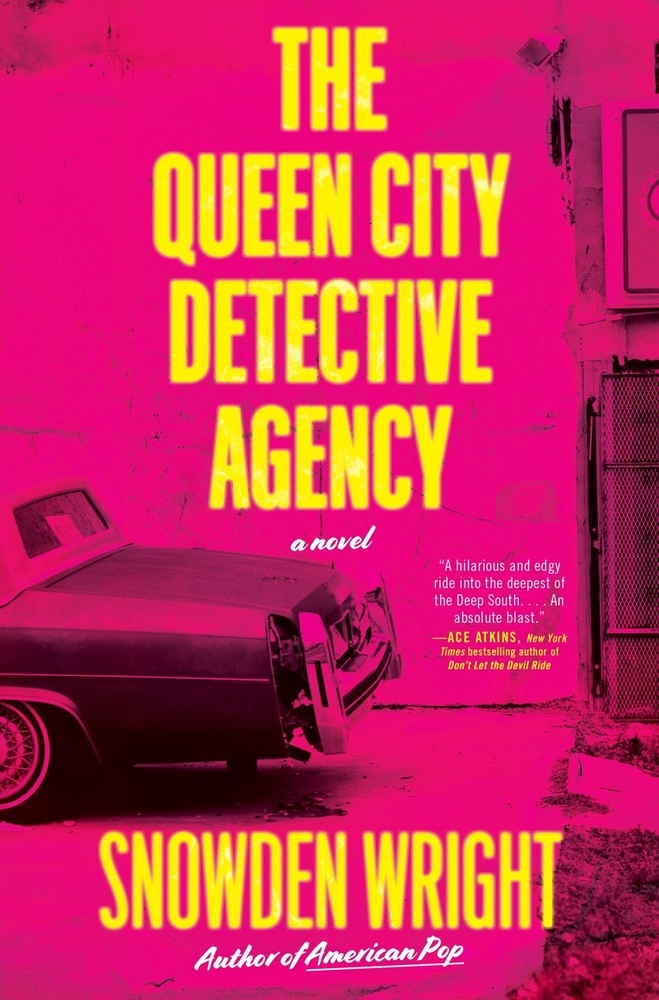
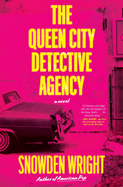
 Eventually the article turned to audiobook narrators, even citing a decision by executives at an international corporate monolith's subsidiary (hint: rhymes with oddible). Apparently the suits had noticed that many of their customers were listening to audiobooks with a sleep timer, which led to the launch of something called the Sleep Collection, featuring "bedtime tales read by stars including Brian Cox, Eva Longoria and Keke Palmer.... But for dozing off, many listeners find audiobooks originally intended to entertain do the trick just fine," the Journal wrote.
Eventually the article turned to audiobook narrators, even citing a decision by executives at an international corporate monolith's subsidiary (hint: rhymes with oddible). Apparently the suits had noticed that many of their customers were listening to audiobooks with a sleep timer, which led to the launch of something called the Sleep Collection, featuring "bedtime tales read by stars including Brian Cox, Eva Longoria and Keke Palmer.... But for dozing off, many listeners find audiobooks originally intended to entertain do the trick just fine," the Journal wrote. 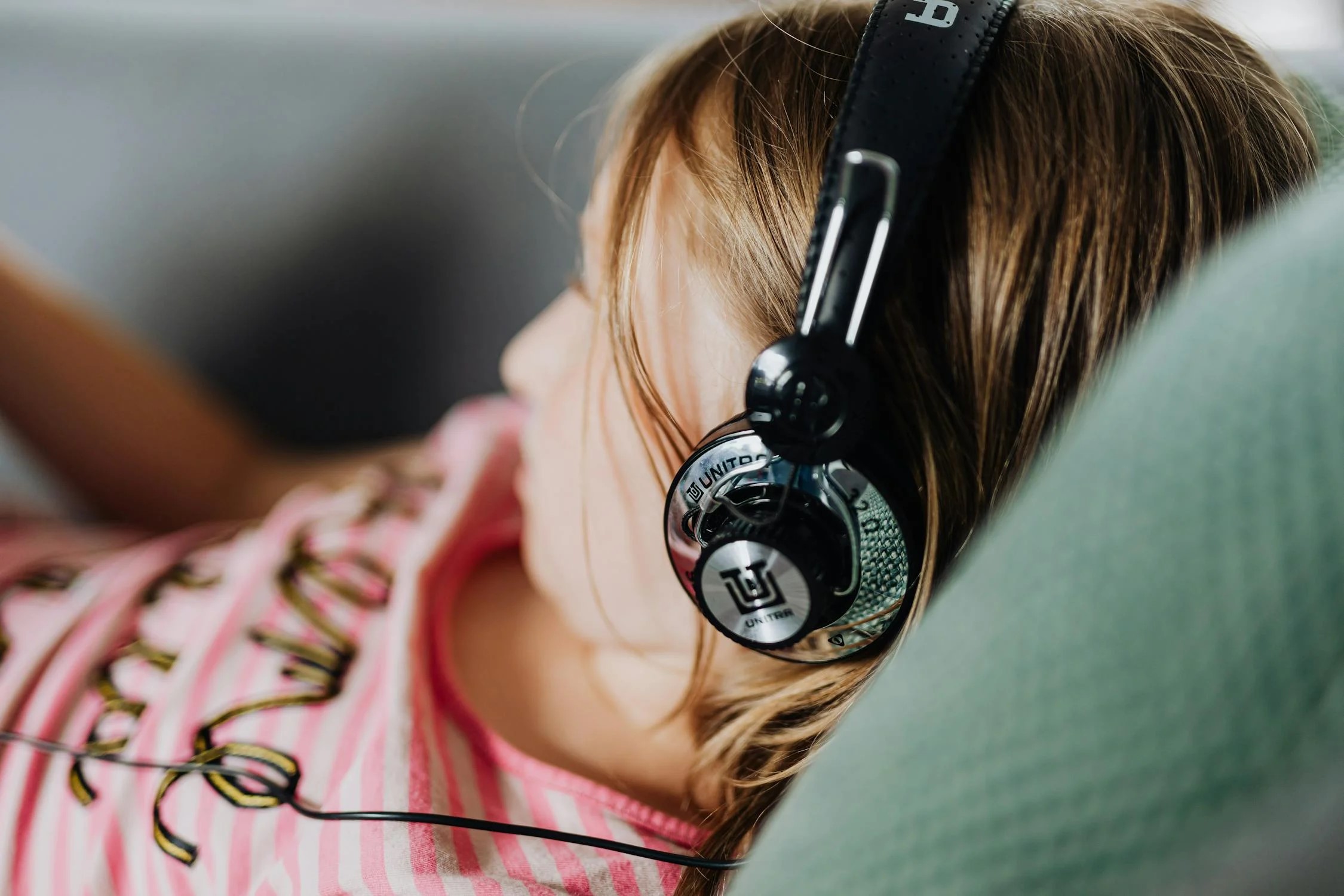 In any case, the audiobook market is thriving despite them, so somebody's staying awake.
In any case, the audiobook market is thriving despite them, so somebody's staying awake.